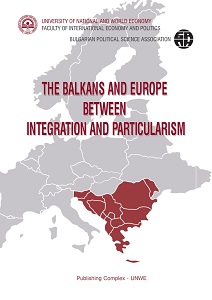Political Culture of the Balkans: Historical Background and Contemporary Characteristics
Political Culture of the Balkans: Historical Background and Contemporary Characteristics
Author(s): Daniela Pastarmadzhieva
Subject(s): Politics / Political Sciences, Politics, Political Sciences, History and theory of political science, Comparative politics, Politics of History/Memory, Politics and Identity
Published by: Университет за национално и световно стопанство (УНСС)
Keywords: Balkans; transition; political culture; democracy
Summary/Abstract: Today’s challenges of the Balkan countries are largely a result of the fact that the national model of statehood is very difficult to operate in a region where the Ottoman Empire existed for many years. This left a strong footprint on the culture and traditions of the population. All these formed the contemporary political culture of the Balkan countries. Thus, the present research focuses on the Balkan states’ political culture. It aims at making a general description ofthe political culture of the Balkans, identifying the common features of the countries, using historical approach and comparative analyses.. Also a comparison is made with the political culture of "full democracies". The analysis covers indicators and builds on data from the European ValuesStudy, 4th wave. The results show that the countries indeed have common characteristics but stillthere are variations. Although the Balkan countries are close to full democracies on some of theindicators, on others – significant differences are observed.
Book: The Balkans and Europe between Integration and Particularism
- Page Range: 118-131
- Page Count: 14
- Publication Year: 2019
- Language: English
- Content File-PDF

